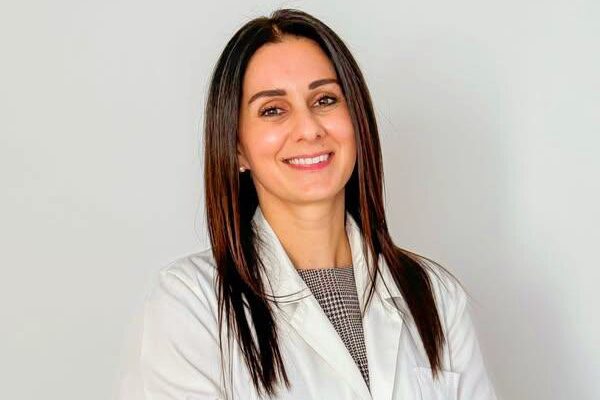
For this month’s spotlight, we spoke with Ourania Koltsida MD, a respiratory physician from Athens. Ourania was a panellist for one of the first ever patient-centred studio sessions at the ERS Congress this year. She spoke to us about her experience of the session and the value of working with patients to improve respiratory healthcare.
My name is Ourania Koltsida. I live and work in Athens and I am a respiratory physician. I work in Sotiria hospital where I have been running the Pulmonary Rehabilitation Department since 2017, often working with patients with COPD and Asthma.
I think it is an unmet need to involve patients in the way that ELF does with ERS. Without their participation, we do not have the chance to understand their challenges and perspectives. We need patient involvement to understand the way they feel and if they are anxious about their lung condition. It’s really important to have patients at the Congress and represented by patient organisations.
I think it is important that, as clinicians, we should encourage more and more patients to attend the Congress. I think that Greece is underrepresented, unfortunately. But I’m very happy with ELF and the other organisations that can attend and make a statement during the conference, as well as have the opportunity to ask for funding or for other contributions from healthcare professionals. This kind of support is needed for patients everywhere.
I really enjoyed it! I was very happy to meet the patient panellists Steve, Helen and Justine. I got to speak with Justine before the session, and she told me her story and her difficulties living in Paris with bronchiectasis. We talked about family rehabilitation, and it was a great experience meeting them all. Steve was great, he’s so brave. He’s a very inspiring person. We had really great conversations, and I think we all enjoyed the session.
It was my first time doing something like this, but I really enjoyed it. I hope to take part in more discussions like this in the future. It would be great to explore other topics, like severe asthma, COPD, or with pulmonary fibrosis patients, and beyond. This format offers a great balance between patients sharing their experiences and clinicians responding to their questions in real time.
We have had positive feedback about the session and it gave us the opportunity to start a conversation about the different barriers to care and what can be done to improve things.
I think that the ERS is clearly very supportive of patients and ELF’s activities. It has been great to see healthcare professionals and patients connecting with each other. I hope to see more sessions that highlight these kinds of discussions between patients and clinicians, like the studio sessions do, covering a wide range of topics — not only about rehabilitation, but also cancer, IPF, bronchiectasis, severe asthma or COPD. These are some of the main problems I see in pulmonology, and I would like to see more interaction and support around these issues.
I’m hopeful for the future of respiratory care. Scientists are trying to solve all these problems with medical treatments, but we need collaboration between patients and healthcare professionals to understand what matters. As clinicians, we need to be close to our patients as much as we can. We need to devote time to hear what our patients need. It is not just treatments that our patients need, but also the psychological support. They need validation, they need advice and they need to know that someone is here for them when they want help. This is what I try to do when I work in Athens.
Sometimes you develop a closer relationship with the patients because they are living with chronic respiratory disease and they come back to us for help often. It is important that they feel safe to do this, and they feel safe if they are close to their doctor. It is great to have a strong patient and doctor relationship, it is needed, and I hope that this continues to be encouraged.